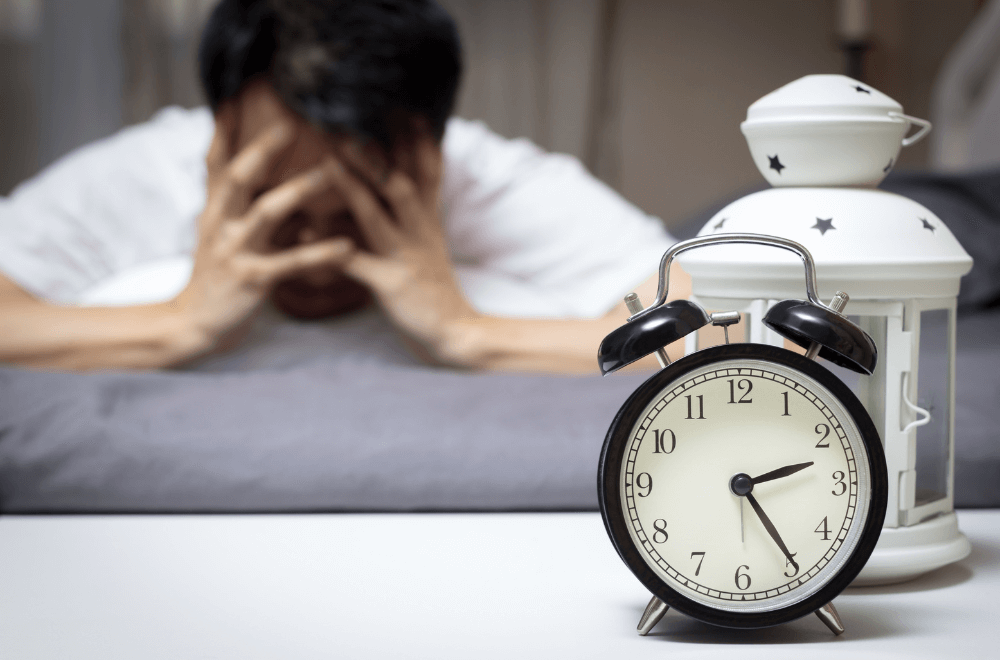For college students and busy working parents, asking how long does caffeine last might be a question of life or death. We’re here to give you a solid answer!

We’ve all been there. You’re sitting down on your second or third cup of coffee, and you’re wondering if the caffeine effects are still going to be present in an hour or two. Caffeine has a relatively short lifespan in your body, and its maximum energy boost peaks at around 30 to 60 minutes!
Typically speaking, the half-life of caffeine – meaning the time it takes for your body to break down and eliminate one-half of the consumed amount – is about three to five hours in total, but it can take 15 hours or more for the caffeine to completely be out of your system. But what does this mean, and will you be doomed to forever sip cup after cup of coffee? Luckily, this article is here to answer all your caffeine-related questions so you can enjoy your cup of Joe with confidence! You might also be wondering, why does caffeine not affect me?
What Is The Half-life Of Caffeine?
By understanding the half-life of caffeine, you can better understand how long it takes for the effects to wear off. As caffeine is broken down in your body, its effects will gradually lessen until eventually disappearing altogether. Your body will begin to process the caffeine soon after you ingest it, and within a matter of hours, your body’s natural processes will have broken down and eliminated most of the caffeine from your system.
To understand the half-life of caffeine, think of it this way if you drink a cup of coffee with 100mg of caffeine:
- In three to five hours, only 50mg will remain
- After ten hours, 25mg will remain in your system
- After 15 hours, 12.5 mg will be present
This process will keep repeating until, eventually, all the caffeine is eliminated from your system. Even after 15 hours, there are still minimal amounts of caffeine in your system. If you’re wondering if that second cup of coffee is really necessary, the answer is yes; it will still have an effect on your body since you don’t have as much caffeine coursing through your veins at the 15-hour mark.
What Affects Caffeine Half-life?
There are several factors that can affect how quickly caffeine is eliminated from your system, such as the amount of caffeine ingested, tolerance, gender differences, and other factors. Below are some key things to consider when asking yourself how long does caffeine last in your body.
Caffeine Content

By far, the biggest factor that affects how long caffeine will stay in your system is the amount of caffeine ingested. Generally, the more caffeine you consume, the longer it will take for it to be eliminated from your body. So if you’re having a grande latte with 200mg of caffeine, it might take up to twelve hours or more for all of it to be processed out of your system.
Unfortunately, some people might not realize they’re taking in quite a bit of caffeine in their morning cup of Joe. To help you out, here is the average caffeine content for common drinks:
- Coffee (8 oz): 90 mg
- Espresso (1 oz): 60 to 70 mg
- Black tea (8 oz): 47 mg
- Green tea (8 oz): 25 mg
- Soft drinks (12 oz): 29 mg
- Energy drink (12 oz): 75 mg to 86 mg
Why is it important to know the caffeine content of your drinks and snacks? Knowing the caffeine content is helpful in determining how long it will last in your system – and helps you plan accordingly if you need to stay energized throughout the day! It also helps you understand why you might feel stimulating effects despite drinking coffee hours earlier – perhaps you have caffeine sensitivity, or you simply drank more caffeine than you realized.
In addition, it’s important to note that decaffeinated coffee still has caffeine in it, although the effects are quite minimal. A normal decaf eight-ounce cup of coffee usually has around 7 mg of caffeine. If you’re aiming for a caffeine-free lifestyle, opting out of decaf coffee is advised, but if you’re simply trying to lower your caffeine consumption, feel free to enjoy that decaf coffee.
Tolerance
Another factor that can affect the half-life of caffeine is how tolerant your body is. People who drink a lot of caffeinated beverages generally build up a tolerance over time and can metabolize it quicker – meaning the effects will wear off sooner than someone who rarely consumes caffeine.
While this might sound like a good thing, it’s unadvised to consume over 400mg of caffeine a day. According to the FDA, over-consumption can lead to symptoms such as:
- Anxiety
- Insomnia
- Headaches
- High blood pressure
- Tachycardia, or fast heart rate
- Gastrointestinal issues
- Nausea
Gender Differences
Studies have found that, on average, men metabolize caffeine faster than women. In turn, this means they store more of it in their blood (called decreased clearance), meaning it takes more time for the caffeine to be eliminated from their bodies. This might also be why men drink more energy drinks and report more jittery side effects.
Personal Metabolism
Your personal metabolism might also play a role in how long caffeine stays in your system. Eating habits, exercise, sleep patterns, and other lifestyle factors can all affect how fast you metabolize caffeine.
How To Minimize Your Caffeine Tolerance
Like any other drug, people who ingest caffeine might find that their tolerance will increase over time, leading to a need for more caffeine intake to get the same effects.
To help minimize your tolerance, here as some tips you can follow:
- Minimize ingestion: If you’re looking to minimize the effects of caffeine on your body, it’s best to cut back on how much you consume. Try drinking smaller portions of caffeinated drinks, or switch them out for decaffeinated versions.
- Take a break: Taking breaks from caffeine is important in order to reset your tolerance level and help prevent headaches or nausea as a result of over-consumption. While you might experience some withdrawal symptoms like migraines, headaches, and irritability, you’ll be able to balance out your caffeine levels in no time.
- Stay hydrated: Drinking plenty of water throughout the day will help keep your body hydrated and minimize the diuretic effects of caffeine. The more water you drink, the more you’re able to replace any nutrients your body got rid of due to excess caffeine, and the better you’ll feel.
- Opt for decaf or alternative caffeine: Tea, coffee, and energy drinks aren’t the only sources of caffeine – some foods also contain it in small amounts if you’re looking for a way to get a small caffeine boost without overdoing it, opt for decaf coffee or tea, or switch to an alternative source of caffeine such as dark chocolate.
Do I love coffee? Yes, but I also know it’s important to note overdo it, and lowering your tolerance can help make that cup of coffee powerful again! Learn more in our explainers on how is decaf coffee made and how much caffeine does decaf coffee have.
Sleep Disorders And Caffeine Use
Some people with severe sleep disorders, such as narcolepsy, might be wondering how long caffeine will last and if caffeine affects their sleeping disorder issues. Unfortunately, no amount of caffeine will affect their sleepiness, and they will need to rely on medications prescribed by their doctor.

Caffeine is a powerful stimulant, and its effects can last for several hours after ingestion. For the average person, caffeine works by blocking the adenosine receptors in the brain, which are responsible for making us sleepy and working on the central nervous system. Drinking coffee or other caffeinated drinks can make you feel more alert and awake, but it can also disturb your sleep cycle if you drink it too close to bedtime.
It’s important to note that caffeine doesn’t stay in the body indefinitely. In most cases, it will be eliminated from the bloodstream within six hours, depending on your metabolism and lifestyle factors. However, keep this in mind if you’re currently struggling with another sleep disorder: insomnia.
Let’s say you drank a 12-ounce cup of coffee with an added espresso shot for a total caffeine content of 200 mg at 8 PM. This means that at 12 AM or 1 AM (roughly), you’ll still have half of the caffeine of your original drink, or 100 mg of caffeine, in your system. If you consume caffeine a little before bed, this can disrupt your sleep if you’re trying to get to bed at a reasonable hour.
It’s best to limit yourself to no more than 400 mg of caffeine per day and avoid drinking any caffeinated beverages around seven hours before bed to prevent it from interfering with your sleep!
